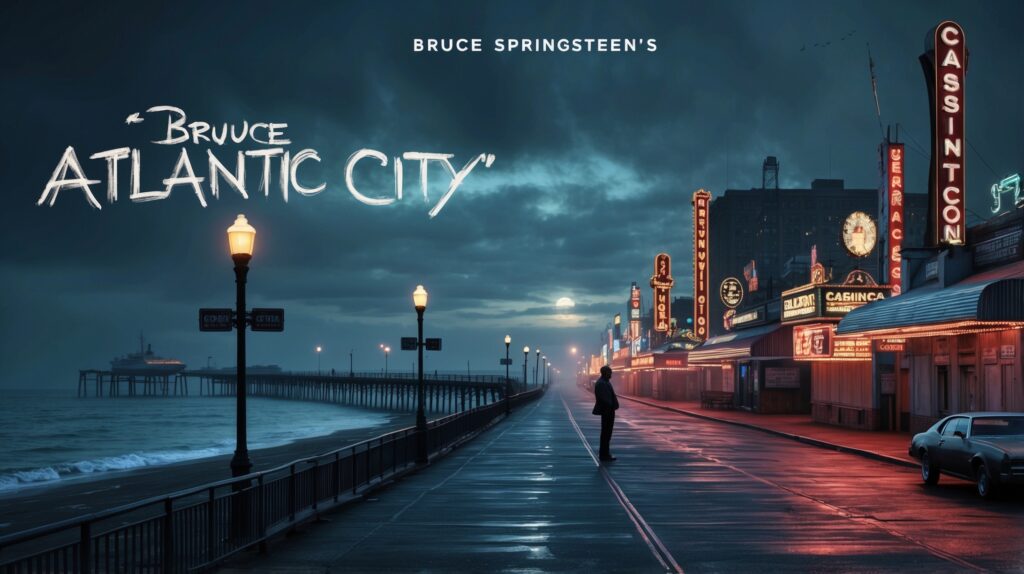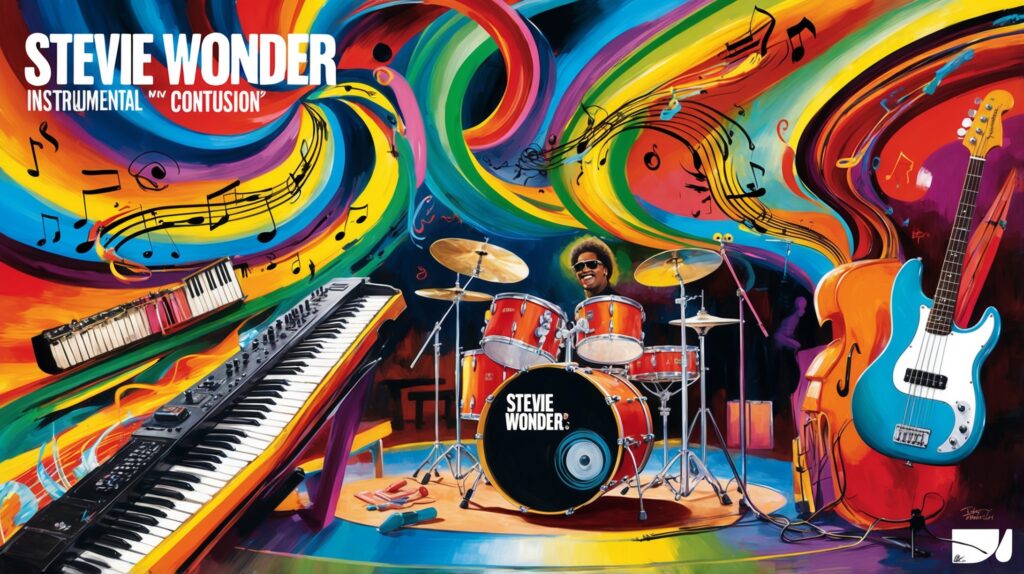Bruce Springsteen: The Voice of Working-Class America
Explore Bruce Springsteen’s journey and impact on American music, highlighting his connection to “Atlantic City” and its reflection on working-class struggles.
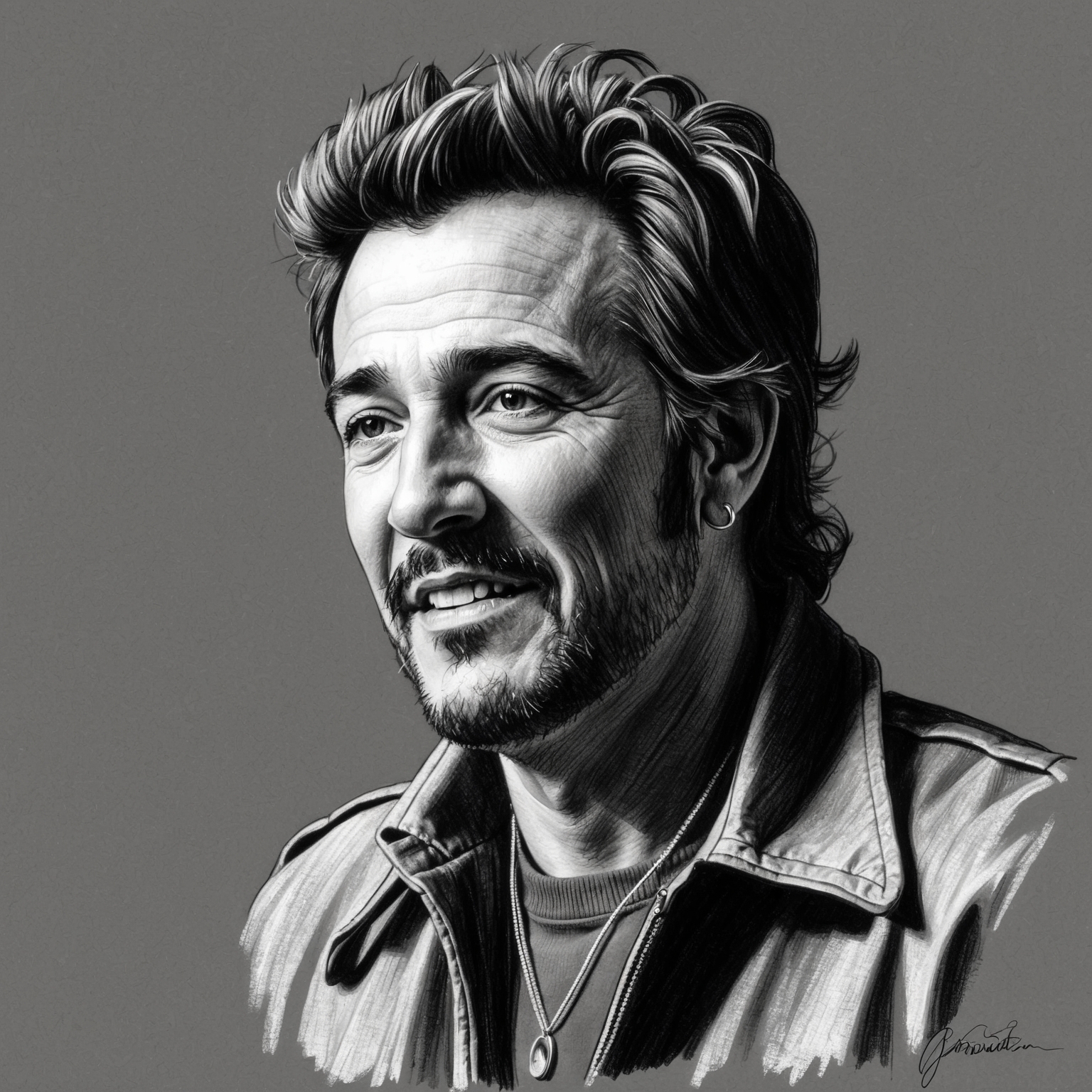
Bruce Springsteen, known affectionately as “The Boss,” has carved an indelible mark on the landscape of American music. With his song “Atlantic City,” Springsteen not only showcased his exceptional songwriting prowess but also solidified his position as the voice of the working-class American. This track is a testament to his ability to capture the raw emotions and experiences of everyday people, making it a pivotal work in his career.
Springsteen was born in Long Branch, New Jersey, in 1949, and his early life was marked by a deep love for music. His journey began in the bar scenes of Asbury Park, where he honed his craft and developed his distinctive sound, a blend of heartland rock and poignant storytelling. The release of “Atlantic City” in 1982 came during a period when Springsteen was redefining his approach to music, moving away from the high-energy rock of his previous albums to a more stripped-down, acoustic-driven sound.
During the early 1980s, while the music scene was dominated by synthesized pop and glam rock, Springsteen’s decision to release “Atlantic City” as part of his acoustic album Nebraska was a bold move. The song encapsulates themes of desperation and redemption, reflecting the socio-economic challenges faced by many during that era. His storytelling within the song resonated with listeners, reinforcing his reputation as a masterful storyteller who could translate the struggles of the common man into hauntingly beautiful melodies.
Bruce Springsteen: The Mastermind Behind ‘Atlantic City’
Explore Bruce Springsteen’s instrumental role as the composer of ‘Atlantic City’, delving into his background, influences, and the defining elements of his musical composition that crafted this iconic piece.
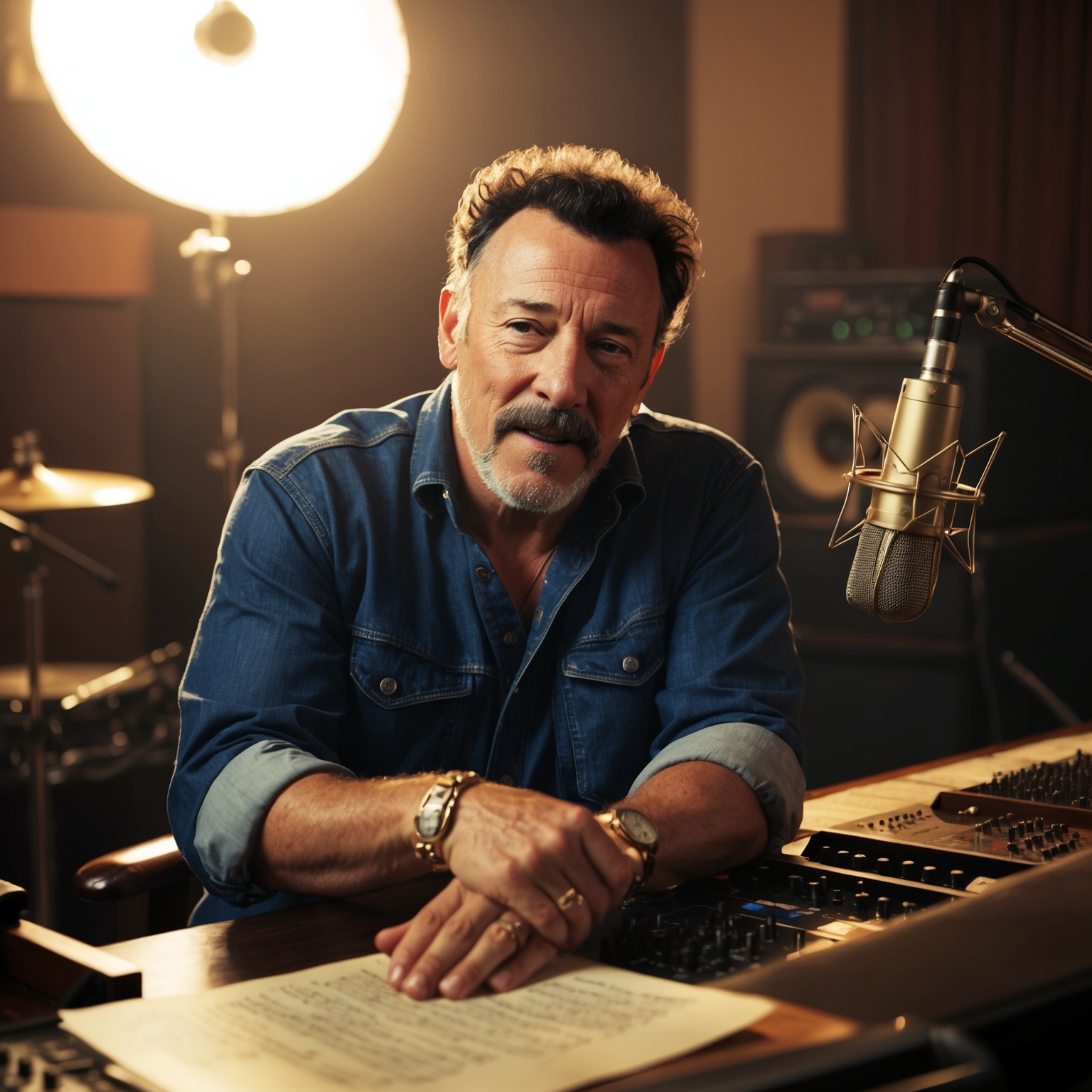
The composer of ‘Atlantic City’ is none other than Bruce Springsteen himself, a towering figure in the music world known for his poetic lyrics and stirring melodies. Springsteen was born in Long Branch, New Jersey, an area that has deeply influenced his music. During his early years, Springsteen honed his skills by performing with various bands, leading to his breakthrough with his backing group, The E Street Band. His style is a unique blend of rock and roll, heartland rock, and Americana, which resonates with audiences due to its authenticity and raw emotion.
Springsteen’s musical style is heavily influenced by the likes of Bob Dylan, Van Morrison, and Elvis Presley, among others. His narrative songwriting approach is laced with themes of working-class struggles, personal reflection, and the American experience. These influences and themes are prominently showcased in ‘Atlantic City’, a song that conveys a poignant story full of darkness, hope, and redemption.
In composing ‘Atlantic City’, Springsteen played a multitude of roles. His signature touch includes the haunting yet minimalist arrangement that breathes life into the song’s foreboding lyrics. Springsteen often integrates his music with storytelling, crafting tunes that feel like listening to short stories. In this song, the sparse musical composition significantly enhances the narrative, underscoring Springsteen’s undeniable prowess as a composer.
Honors, Covers, and Cultural Impact of ‘Atlantic City’
Explore how Bruce Springsteen’s ‘Atlantic City’ left its mark with various notable covers, media appearances, and its lasting cultural impact despite not having a trove of prestigious awards.
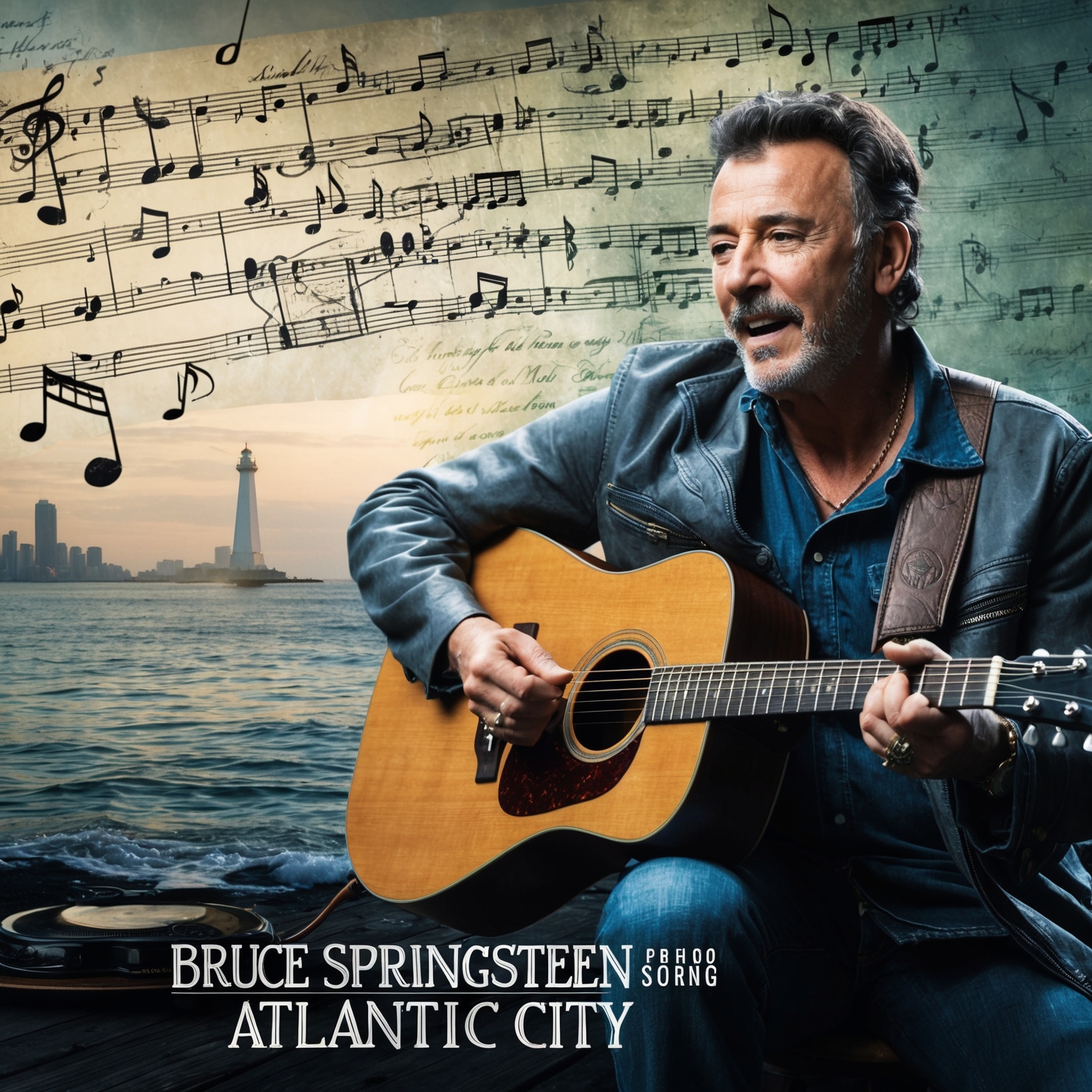
Bruce Springsteen’s ‘Atlantic City’ might not have clinched a plethora of awards directly; however, its impact and enduring legacy are indisputable. The song hails from his 1982 album Nebraska, a project that was critically acclaimed and considered a masterpiece by many. While the album itself didn’t sweep the Grammys, it solidified Springsteen’s place as a profound storyteller and elevated his stature in the music industry. The evocative lyrics and the stripped-down acoustic sound of ‘Atlantic City’ were significant factors contributing to the album’s reception. Though the track did not gather accolades in traditional award circuits, it left an indelible mark on Springsteen’s artistic reputation.
A testament to the song’s timelessness is its resonance with numerous artists who cover ‘Atlantic City,’ both paying homage to Springsteen and introducing the song to their audiences. Notable covers include those by The Band, whose 1993 version brought a full band arrangement to the haunting original, offering a different yet equally compelling take. Steve Earle, Levon Helm, and Ed Sheeran have also covered the song, each bringing their unique style while honoring the integrity of the original piece. Such covers not only spotlight Springsteen’s songwriting prowess but also ensure the song’s continued relevance across generations.
The cultural reach of ‘Atlantic City’ extends beyond covers, finding its way into various media categories. The song has been featured in several television series, including the critically acclaimed show The Sopranos, where its inclusion helped underline the themes of despair and hope found in both the series and the song. Additionally, it has appeared in other TV shows and documentaries, further demonstrating its resonant storytelling ability and its aptness for diverse narrative contexts. Through these appearances and renditions, ‘Atlantic City’ maintains its presence not just as a song but as a piece of narrative art that continues to captivate and inspire.
Exploring the Chart Performance of ‘Atlantic City’
Despite modest chart performance, ‘Atlantic City’ is an enduring classic, cherished for its storytelling and artistic impact.
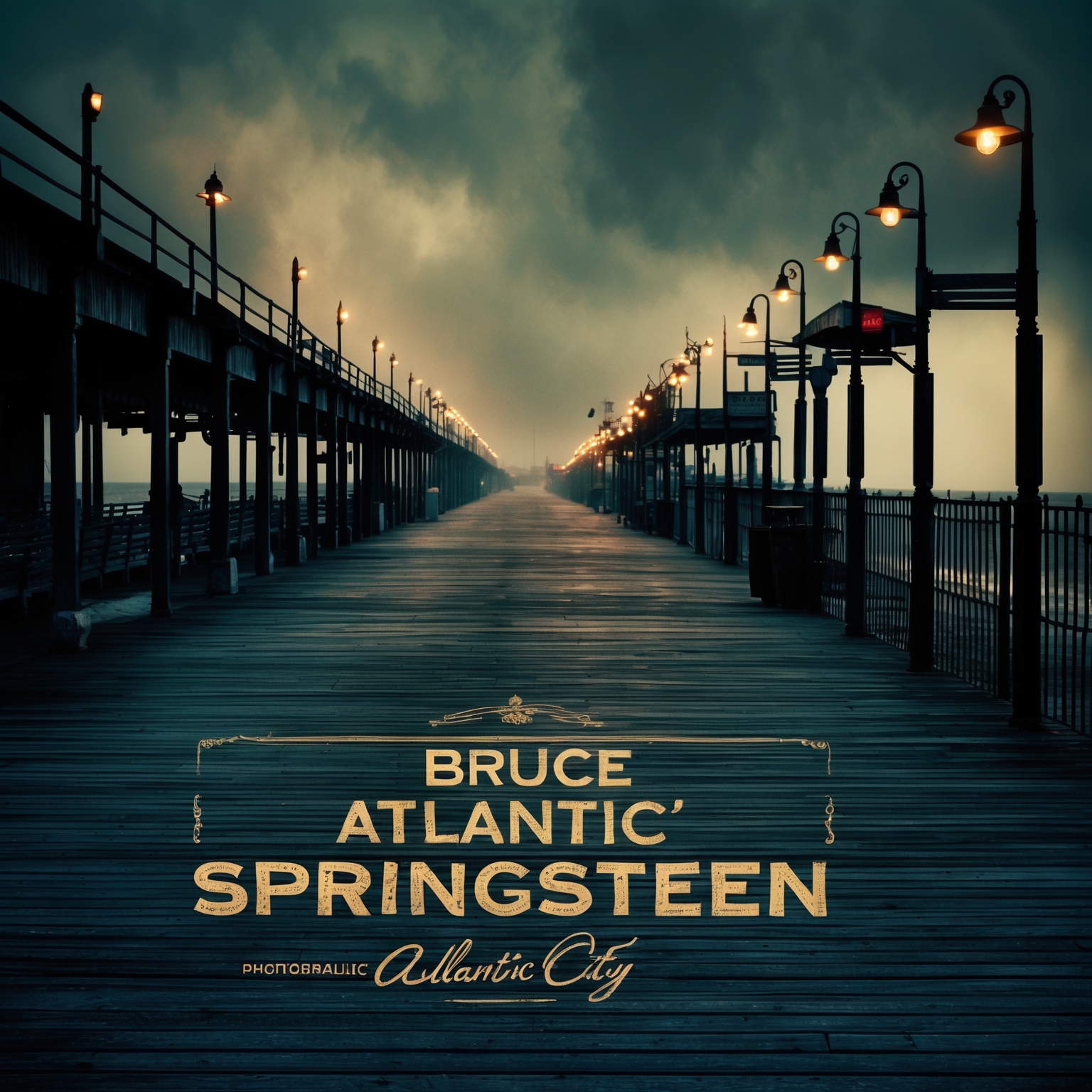
Bruce Springsteen’s ‘Atlantic City’, released in 1982 as part of his acclaimed album ‘Nebraska’, did not make a significant impact on traditional music charts upon its release. Despite its lack of high chart positions, the song has earned a lasting place in the hearts of fans and critics alike. Unlike some of his earlier anthems that dominated the charts, ‘Atlantic City’ carved its own niche, distinguished by its raw acoustic sound and poignant storytelling.
The song, a stark departure from the rock sound that had gained Springsteen massive commercial success, peaked modestly, not seeking the limelight owed to more mainstream endeavors. It stood apart from chart-topping hits like ‘Born to Run’ or ‘Born in the U.S.A.’, instead embracing a minimalist approach that resonated more profoundly on a critical level than a commercial one. Its performance was reminiscent of an underground classic, lauded for its artistry more than its radio play numbers.
The song’s subdued chart success did not hinder its profound impact on Springsteen’s career. It highlighted his versatility as a storyteller and musician, reinforcing his reputation as the ‘everyman poet’. ‘Atlantic City’s’ enduring legacy is evident in its cultural impact and influence on subsequent artists. The song’s reputation has grown over time, largely due to its inclusion in countless playlists and covers by various artists, which have introduced it to new generations of listeners.
Visual Interpretations and Impact of ‘Atlantic City’
Explore the dynamic interpretations of ‘Atlantic City’ through fan videos and live performances, each capturing the song’s haunting narrative in compelling visuals.

Bruce Springsteen’s ‘Atlantic City’ does not have an official music video in the traditional sense, but the song’s compelling narratives and stark themes have inspired a plethora of fan-made videos and live performances that capture its haunting essence. Although the absence of a professionally produced video might seem like a hole in the visual component for such a renowned track, this gap has been creatively filled by fans who resonate with its evocative storytelling. These videos typically utilize imagery that melds with Springsteen’s lyrics, providing a cinematic backdrop that complements the gritty realism of the song.
Unofficial music videos for ‘Atlantic City’ often feature a blend of archival footage and modern-day clips of the city itself. These visuals serve to amplify the song’s themes of desperation, hope, and resilience inherent in the tale of a man caught between survival and morality. Some fan videos emphasize the decayed splendor of Atlantic City, portraying it as a character within the song, its decline paralleling the struggles faced by the characters in the lyrics.
The song has also been immortalized through numerous live performances, each offering a unique interpretation and emotional depth. Springsteen’s live renditions often bring an additional layer of intensity to the song, emphasizing its dark and poignant narrative. Such performances have sometimes included minimalist stage setups that focus on the storytelling aspect, further enhancing the song’s visceral impact. While there might not be a traditional music video, ‘Atlantic City’ lives on powerfully through these various visual adaptations, capturing audiences and ensuring its enduring popularity.
Unpacking the Musical Framework of ‘Atlantic City’
Atlantic City’ is a quintessential Bruce Springsteen composition; its structure, melody, and instrumentation reflect a thematic and musical turning point in his discography.

Bruce Springsteen’s classic track, ‘Atlantic City,’ is a musical masterpiece that showcases the artist’s exemplary skill in crafting poignant narratives through sound. The song is written in the key of G major, a choice that lends it a deceptively simple, yet profound, musical quality. The structure adheres to a verse-chorus form, which effectively underscores the storytelling aspect of the song. The chord progression primarily revolves around G-C-D, providing a foundation that is both familiar and evocative, allowing the lyrics to shine while still offering a slice of the Americana soundscape.
In terms of rhythm and melody, ‘Atlantic City’ carries a moderate tempo, around 120 BPM, creating a contemplative yet driving pace. The melody weaves through the chords in a manner that feels both conversational and introspective, inviting the listener to delve deeper into the narrative. The harmony, achieved through layered acoustic guitars and subtle use of harmonica, enriches the sound, creating depth without overwhelming the core essence of the song. This simplicity in instrumentation—primarily focusing on acoustic guitar, harmonica, and minimalistic percussive elements—delivers an intimate, raw sound that complements the song’s poignant lyrical themes.
When placed in the context of Springsteen’s broader discography, ‘Atlantic City’ marks a distinct point in his career. Released on the 1982 album ‘Nebraska,’ the song reflects a departure from the bombastic, full-band sound of earlier works such as ‘Born to Run.’ Instead, it illustrates a period of introspection and acoustic minimalism, presaging some of the thematic maturity and sonic experimentation found in later albums like ‘The Ghost of Tom Joad.’ The stark production process of ‘Atlantic City’—recorded in Springsteen’s home studio using a 4-track recorder—adds an authentic layer to its stripped-back sound. Anecdotes suggest that the home recording setup allowed Springsteen to capture the raw emotion prevalent throughout the album, a feat sometimes lost in the polish of a commercial studio environment.
Exploring the Depths of Bruce Springsteen’s ‘Atlantic City’
Dive into the lyrical depth of Bruce Springsteen’s ‘Atlantic City,’ exploring themes of economic hardship, hope, and resilience. This analysis delves into the song’s storytelling, use of literary devices, and emotional impact, drawing connections to cultural references and Springsteen’s personal reflections.
Now they blew up his house too
Down on the boardwalk they’re gettin’ ready for a fight
Gonna see what them racket boys can do
Now there’s trouble busin’ in from outta state
And the D.A. can’t get no relief
Gonna be a rumble out on the promenade and
The gamblin’ commission’s hangin’ on by the skin of its teeth
Well now everything dies baby that’s a fact
But maybe everything that dies someday comes back
Put your makeup on, fix your hair up pretty
And meet me tonight in Atlantic City
Well I got a job and tried to put my money away
But I got debts that no honest man can pay
So I drew what I had from the Central Trust
And I bought us two tickets on that Coast City bus
Now our luck may have died and our love may be cold
But with you forever I’ll stay
We’re goin’ out where the sand’s turnin’ to gold
So put on your stockin’s ’cause the night’s getting’ cold
And maybe everything dies, that’s a fact
But maybe everything that dies someday comes back
Now I been lookin’ for a job but it’s hard to find
Down here it’s just winners and losers and don’t
Get caught on the wrong side of that line
Well I’m tired of comin’ out on the losin’ end
So honey last night I met this guy and I’m gonna
Do a little favor for him
Well I guess everything dies baby that’s a fact
But maybe everything that dies someday comes back
Put your hair up nice, fix your hair up pretty
And meet me tonight in Atlantic City
 Lyrical Themes and Messages: ‘Atlantic City’ by Bruce Springsteen presents a tapestry of themes that resonate deeply with listeners. The central narrative revolves around economic hardship, existential hope, and a quest for redemption. These themes are both personal and social, reflecting the struggles faced by individuals during the economic turmoil of the early 1980s. Springsteen captures a universal dilemma: the desperate desire to escape poverty and find renewal, set against the backdrop of a decaying cityscape. The repetition of the line ‘everything dies, baby, that’s a fact, but maybe everything that dies someday comes back’ underscores a message of resilience and uncertain hope amidst despair.
Lyrical Themes and Messages: ‘Atlantic City’ by Bruce Springsteen presents a tapestry of themes that resonate deeply with listeners. The central narrative revolves around economic hardship, existential hope, and a quest for redemption. These themes are both personal and social, reflecting the struggles faced by individuals during the economic turmoil of the early 1980s. Springsteen captures a universal dilemma: the desperate desire to escape poverty and find renewal, set against the backdrop of a decaying cityscape. The repetition of the line ‘everything dies, baby, that’s a fact, but maybe everything that dies someday comes back’ underscores a message of resilience and uncertain hope amidst despair.
Narrative and Storytelling: Springsteen adopts a first-person narrative style, immersing the listener in the protagonist’s turbulent journey. This perspective creates an intimate connection between the audience and the story, as they are guided through moments of fear, determination, and fleeting optimism. The depiction of a man grappling with insurmountable debts, contemplating illicit endeavors, and yearning for a fresh start in Atlantic City paints a vivid picture of struggle and aspiration. The narrative is structured around distinct vignettes, each contributing to the song’s overall impact.
Use of Literary Devices: Springsteen’s lyrical mastery is evident through his adept use of literary devices. The song is rich with metaphors and imagery, capturing the stark contrast between hope and desolation. Phrases like ‘sand’s turning to gold’ metaphorically emphasize the elusive nature of success. Springsteen’s use of alliteration and internal rhymes enhances the song’s lyrical quality, crafting a haunting melody that lingers in the listener’s mind. These devices serve to evoke emotions of melancholy, perseverance, and an underlying sense of yearning.
Cultural and Social References: ‘Atlantic City’ is steeped in cultural and social references, grounding the song in its real-world context. The opening lines reference the infamous ‘Chicken Man’ bombing in Philadelphia, setting a tone of violence and tension. The allusions to organized crime and the troubled gambling industry highlight the seedy underbelly of Atlantic City during that era. These references lend an air of authenticity and urgency to the song, making it relatable to audiences who lived through similar socio-economic challenges.
Emotional Impact and Relatability: Emotionally, Springsteen’s lyrics resonate on multiple levels. They evoke feelings of desperation and determination, as the protagonist navigates a world of winners and losers. The song’s relatability stems from its portrayal of universal human struggles: the desire for a better life, the compromises one makes, and the hope for redemption. The repeated invitation to ‘meet me tonight in Atlantic City’ becomes a poignant plea for connection and renewal, touching listeners who have faced their own battles.
Personal Reflections of the Artist: Bruce Springsteen himself has reflected on the stark realities communicated in ‘Atlantic City’, noting its somber but hopeful tone. His insights add depth to the song’s interpretation, highlighting how personal experiences and societal observations influence its creation. These reflections enrich the listener’s understanding, offering a glimpse into Springsteen’s artistic process and the societal issues he seeks to illuminate.
? Did you know? Bruce Springsteen’s Atlantic City from his 1982 album Nebraska was recorded on a 4-track in his bedroom! Talk about DIY rock! ? #FunFact #TheBoss #AtlanticCity #DIYMusic #MusicTrivia tinyurl.com/3jfhwc5t
Click to Tweet

